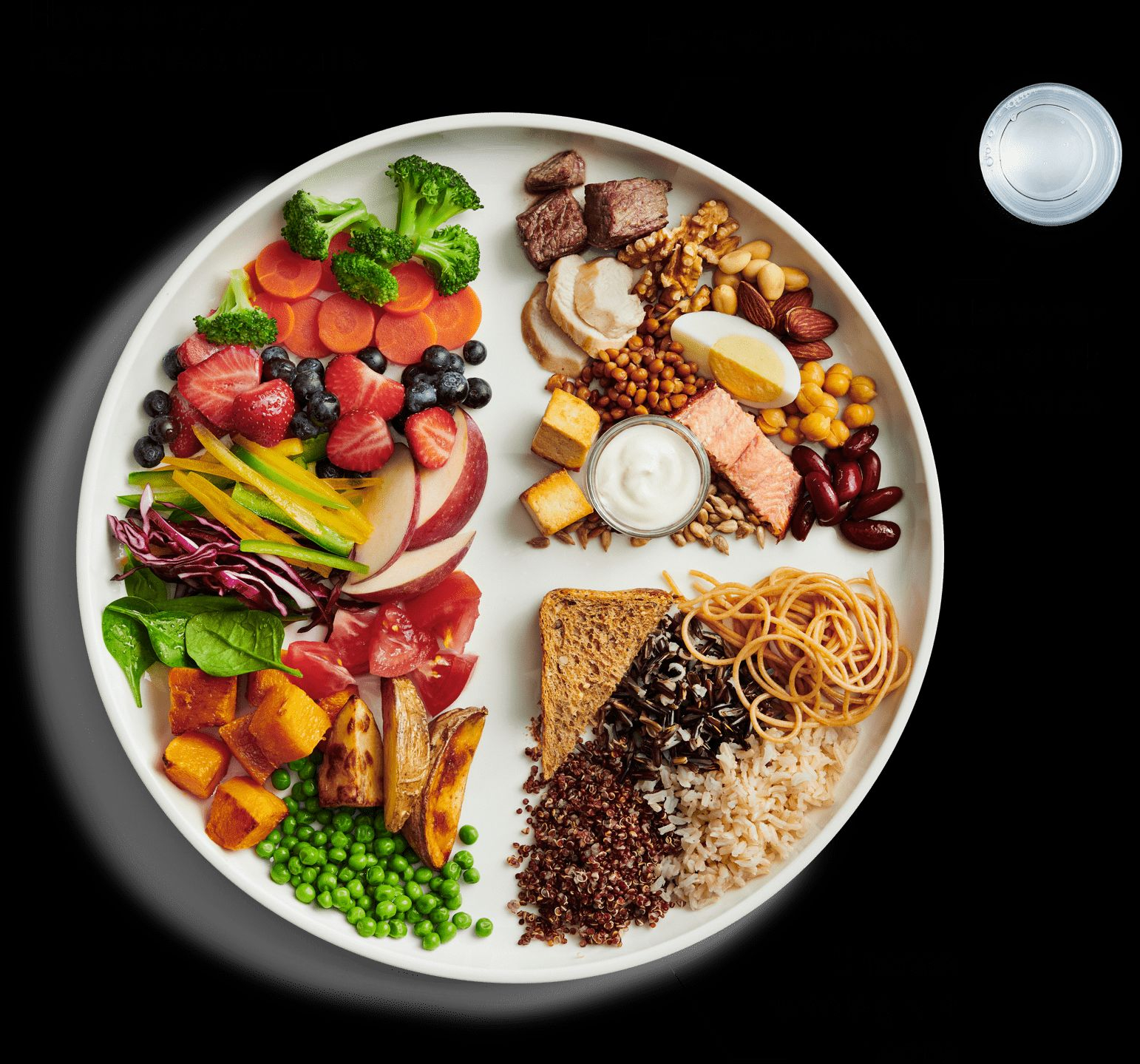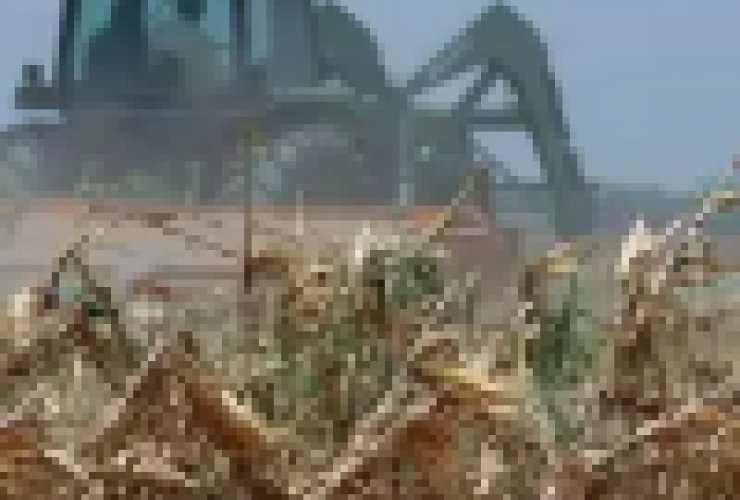Over the last two months, our food system has faced unprecedented challenges. Almost overnight, the food service industry, which usually consumes one third of produced, shuttered. Not only is this likely to destroy tens of thousands of small businesses, the supply chains that fed these bars, restaurants and cafeterias have gone through wrenching shifts.
Potato farmers have learned that we eat very few french fries when dining at home. At the moment, there are 200 million pounds of Canadian potatoes stuck in storage with no one to buy them. Meanwhile, flour mills work overtime to keep up with our new-found passion for baking.
Consumers emptied grocery store shelves in their rush to stock up on non-perishables, while millions of Canadians now find themselves out of work. And the livestock industry is reeling after the closure of major-meat packing plants all over North America due to COVID-19 outbreaks, throwing the supply of meat into question.
Despite all this, on the surface at least, our food system looks remarkably normal — especially given the scale of the disruption we’ve just experienced. Supply chains are adapting, food banks are now supported by Ottawa, and industry has worked with government to ensure temporary foreign workers are coming to our farms. The picture isn’t perfect, of course, but there have been more successes than failures. It seems that many aspects of the food system — which means the men and women who farm, process, transport and sell food — have quietly pulled off one of the greatest logistical feats in human history.
That said, the next period is going to be difficult. In Canada, skyrocketing unemployment is driving up food insecurity to catastrophic levels while the UN predicts major parts of the world will tip towards a COVID-induced famine of “biblical proportions.” Farmers struggle to obtain basic inputs such as sanitizer (essential to keep dairy parlours clean and workers safe). Experts even worry about fertilizer supplies.
We should make no mistake, for all the successful adaptations of the last eight weeks, COVID-19 presents our food system with unprecedented challenges that we must learn from. We must also remember that COVID-19 is something of a vanilla virus — with a mortality rate of about one per cent, it pales in comparison with the truly terrifying pathogens like Ebola or even Avian Influenza. In short, the next pandemic could be worse. Much worse. Meanwhile, climate chaos still waits to unleash the full extent of Mother Nature’s fury. It may be that history views COVID-19 as a sort of dress rehearsal, or warm up act, for what will almost inevitably be the Century of Disruption.
Set against this apocalyptic nightmare scenario, however, COVID-19 has the potential to usher in an Agricultural Renaissance that will drive economic recovery, make us healthier and heal our planet. The convergence of data science, robotics and genomics is poised to herald a new agricultural revolution that will be as significant as the Green Revolution was almost 100 years ago. These changes were already beginning. COVID-19 speeds up these trends.
For instance, we already knew that the world’s protein systems were on the cusp of a radical transformation due to new products coming on the market (e.g. Impossible and Beyond), an awareness of the environmental impact of traditional livestock, and changing consumer demands. COVID-19 is driving us to embrace shorter-supply chains, greater decentralization and more regional self-sufficiency, which will accelerate this process. Animal protein systems have been optimised to produce very cheap products in quantity, and we are now paying for that optimization with sick workers and supply chain bottlenecks. After COVID-19, expect meat to be more expensive and more non-animal protein options in stores. Canada will be a winner in this arena as our prairies pump out protein alternatives from peas, soybeans and oats.
The changes that we are starting to see in protein will spread to other sectors. Horticulture, fruits and vegetables are also on the verge of major change, moving to indoor, controlled and labour-free systems that are integrated into the built urban environment. Better e-commerce, technologies to drive food system transparency, and AI controlled food systems are set to follow. What will emerge from the convergence of crisis and opportunity is an occasion unprecedented in human existence: by applying digital technology we may soon have the ability to produce practically any crop, practically anywhere, and in practically any season. In the relatively near future, a techno-optimist’s vision is that we should be able to sustain society in the harshest terrestrial environments and beyond.
But as we contemplate this future, tough questions need to be asked. After all, food is not just a series of molecules our bodies use for nutrition. Food brings communities and families together. Food is culture. And producing, processing and transporting food is one of the biggest employers in the world today. For all the transformative power of technology, nothing will change the fact that food is a commodity to which we all have the most intimate of relations. In this, food is unlike any other sector of the economy.
As we race to consider how technology can enable a post-COVID world, we also need to reflect on the impact of all this for farmers. In particular, how will farmers afford such technologies? Will these trends simply accelerate the decline of small and midsize producers all over the world? Most of the world’s ~570 million farms are both small-scale and family-run. What will these people do when novel disruptive technologies become wide-spread? To some extent, consumers can support small farmers through passionate buy-local programs. But this is unlikely to be enough, and economic transition programs need to be adopted by governments everywhere.
Another tough question to answer involves the long-term prospects for families currently dependent on incomes that come from agricultural labour. In places like Canada and the US, hundreds of thousands of people migrate as temporary farm workers each year. The money they earn is a vital source of remittances that helps reduce poverty and promote food security back in their homes. While these temporary jobs are generally poorly compensated, this supply of hand labour is the cornerstone of vast parts of the agricultural sector and provides incomes to people who need it. Reducing our reliance on temporary foreign workers could build a safer food system while also improving labour practices, but what about families who depend on this for their livelihoods?
Next, are there health and food security implications linked with these technologies? Many of these new approaches to agriculture may result in highly processed foods becoming more available for consumers, which may have unintended negative consequences in terms of nutrition. We need consumers and governments to demand the highest nutrition and flavour standards as technology shapes supply chains.
This is Canada’s moment. We have the infrastructure, the technological base, the innovation culture and the workforce. The ag-food sector had already been identified as a strategic area for Canada before the COVID-19 crisis. Now, ag-food can be a key part of our economic and social recovery strategy. We can be global leaders and if we help lead these changes, we can build an agri-food partnership that draws industry, government and academy together to shape our new food future.
The crisis of COVID-19, horrible as it is, also provides an impetus to pivot food systems into the 21st century. Food systems were already on the verge of major technological change before COVID-19 and the current pandemic shortens timelines. To ensure that this change promotes a cleaner environment, promotes better nutrition for all, and allows agri-food to emerge from COVID as an engine of innovation and economic opportunity, we need to exert national and global leadership. Being a leader in the Digital Agricultural Renaissance must be an urgent priority as we pivot to recovery. The United Nations warns that a quarter of a billion people in thirty developing countries will face famine without help. Canada is positioned to provide food, but we can also provide the technologies and know-how needed to establish food sovereignty in all regions. The post-COVID world can be different. It can correct many of the problems and vulnerabilities that COVID reveals. We can invest and deploy the right technologies. We can be a global leader in global food systems. We can feed the future.
I absolutely hate this blind
I absolutely hate this blind faith in technology. And describing farm products as agri-food makes me gag. Giving lip-service to the human element in farming (damning with faint hope.....), giving no hope for small, healthy food producers in a decentralized system, makes me unbelievably sad. This is not life-centred, progressive thinking. This is buying into the corporate machine.
You are right. People will
You are right. People will have to crawl along in the dirt planting and weeding as they've done for centuries if they want to be healthy. They'll have a happier life, too! If they want to be parts of a machine I wish they'd go to a different world. There are plenty of rocky planets with no organic life where machines could function!
Canada has vast areas for
Canada has vast areas for farming, but there is also a lot of ranching, and high meat prices could push it farther into the remaining scraps of wilderness. I'd like to see the sale of animals in any form banned, but the die-hards allowed to hunt if they live in nature's half and use stone-age technology.
To feed ten billion healthy vegans, we have to take a very hard look at the energy cost of any artificial light or hydroponics, etc. Cities need all their sun light for the humans. However, land can be more productive than with chemical farming as an all-organic permaculture. The problem has been the price of skilled labour, but now, small robots will be able to keep track of every plant in a plot, and consult a world-wide database about them. A simple robotic weeder would pay its way easily, and support development of further functions.
Most definetly needed 21ST
Most definetly needed 21ST FOOD SYSTEM TRANSITION. FACTORY FARMING IS AS ENVIRONMENTALLY DAMAGING AS OIL AND GAS and a cruel industry all around for their animal torchure welfare records. We need to move away from animal exploitation and the potential is promotes for world zootonic pandemics like the one we are in!! Farmers need to move towards plant based farming like it or not!!! Farming must account for its carbon footprint now and I am tired of that industry getting left out of being more accountable to our global environmental climate change crisis.







Comments